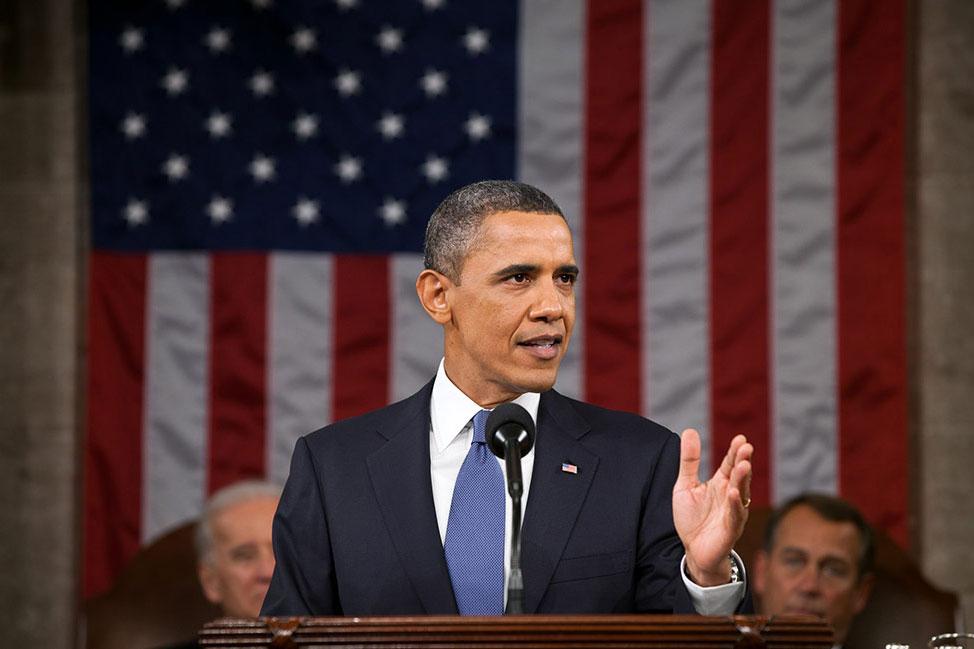
Obama’s State of the Union Speech: Action for the Entire World, Not Just America
(Japan) on 30 January 2014
by Editorial (link to original)
Inaugurated immediately following the beginning of the recent recession, President Obama’s administration has prioritized the economy, and it has considered the withdrawal of troops from the conflicts in Iraq and Afghanistan — begun by the previous Bush administration — a major issue. In this year’s State of the Union speech too, the president spent the majority of his time on domestic policy. Speaking on the topic of diplomacy and defense, however, he declared that he would "not send ... troops into harm’s way unless it’s truly necessary," reaffirming that the U.S. is not the "world’s police." I understand those who say that we are in an age where we can no longer rely solely on the United States. However, it is clear that regions that have been under America’s influence could grow unstable if America’s presence suddenly dissipates. Even if the U.S. withdraws, then, steps must be taken to ensure the stability of those regions going forward.
Take the Middle East and North Africa. The riots, bloodshed and terrorism that began in Syria and continue in a number of countries can hardly be blamed on the United States. However, given that every administration from the 1980s on has grown America’s influence in the Middle East, would not a sudden shift to neutrality only encourage the radicals and terrorists in the region? It is something that must be considered, and East Asia is no different. China has repeatedly intruded into Japanese territory, including unilaterally establishing an air defense identification zone that includes the Senkaku Islands. As a response, the U.S. flew B-2 bombers into the region. So for President Obama to miss touching on this issue in his speech, at a time when China is putting more and more military pressure on Japan, is less unfortunate than it is curious. Can this kind of posture really be beneficial to the stability of East Asia? Even the president’s remarks on the Trans-Pacific Partnership made no direct reference to Japan.
In November of this year, the U.S. will hold its midterm elections. In the State of the Union address, President Obama emphasized issues like raising the minimum wage, the wealth gap and the expansion of women’s rights — all issues where the president can curry favor with the middle class. If the Republican Party can wrest control of the Senate from the Democratic Party — the president’s party — while maintaining control of the House, there is a real danger of President Obama quickly becoming a lame duck. That is precisely why immediate action is necessary. For the president who made "change" his banner and who was the recipient of the Nobel Peace Prize, it would be unfortunate to finish off his eight-year term as it stands now: The president has focused on finding a solution to the issue of Iran’s nuclear program, but North Korea’s situation is much more serious, and the current state of Afghanistan, from where American troops are scheduled to depart within the year, is also a cause for concern. So I want the president to act — for the stability of the entire world.
